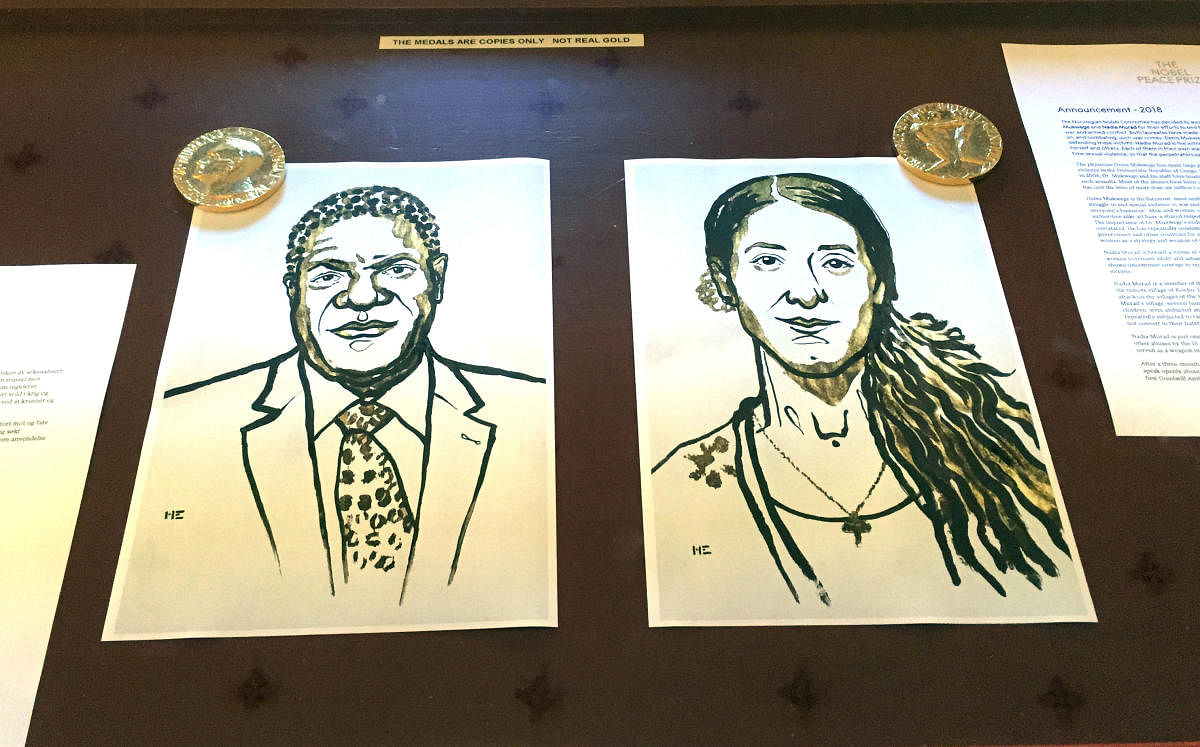
The Nobel committee’s choice of Denis Mukwege, a doctor from the Democratic Republic of Congo, and Nadia Murad, a Yezidi activist from Iraq, for the Peace Prize was right and appropriate. The decision has been widely welcomed around the world. The committee does not have a great reputation for its judgement and some of its decisions have been controversy. It has given the award to unworthy persons and failed to give it to deserving ones. But this year’s awardees richly deserve the recognition and honour that the award brings with it. Both are fighters against sexual violence in war, have helped and extended support to victims of such violence and campaigned to increase the world’s awareness of it. The committee noted that they “put their own personal security at risk by courageously combating war crimes and securing justice for victims’’.
Nadia Murad has also been a victim of sexual violence and crimes. She was abducted with other Yezidi women from her home in Iraq by Islamic State (IS) men, forced into sexual slavery and exploited. After managing to escape from her captors, she has devoted her life to helping victims of sexual violence in conflict situations and has been campaigning for them. She recounted her own sufferings in various fora, including in a memoir, The Last Girl. Her courage and commitment to the cause of wronged women is inspirational. Mukwege worked for many years caring and seeking justice for many thousands of women who were victims of sexual assault in Congo’s civil wars. He set up a hospital to extend medical and psychological aid to them. He also tried to secure socio-economic support for the survivors and to give them legal assistance in their struggles for justice. He was kidnapped once but continued his work with courage and dedication.
Both of them embody compassion and the spirit to fight against sexual violence in war and armed conflict. The award has actually put the focus on sexual violence not only in war but in peacetime society, too. Such violence takes place in schools and colleges and in workplaces and homes. It has received greater attention now, with movements like #MeToo. India is also seeing exposes by women of unwanted and offensive conduct by men. So, the prize for the two has relevance and significance that goes beyond ensuring justice for victims of sexual crimes in war zones. As Nadia Murad said, it also draws attention to the plight of the Yezidi people who were victims of a genocide and inhuman treatment at the hands of the IS, and to the situation of all minorities and survivors of violence all over the world.